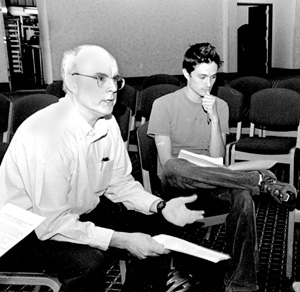Bill Quigley soon will join the ranks of Sister Helen Prejean, Martin Sheen, countless bishops and other Catholic social activists.
Quigley, a professor at the Law School and the director of the Law Clinic, will be traveling to New York City in August to accept the Pope Paul VI Teacher of Peace Award.
It is an award given by Pax Christi, the No. 1 Catholic peace and justice organization.
Pax Christi, an international Catholic organization that began after World War II has more than 16,000 members.
It has been giving the Teacher of Peace Award since 1978, when Dorothy Day, a Catholic social activist and founder of the monthly publication The Catholic Worker, was given the award.
Though Quigley said he is not sure why he was chosen as this year’s recipient, Michael Jones, a Pax Christi spokesman, said that it is the combination of Quigley’s work in human rights, legal representation in underprivileged communities and disarmament that has earned him the award. This past year, Quigley worked with the social justice organization Voices in the Wilderness, which was involved with a trip to Iraq that provided the Iraqis with medical supplies.
Since the U.S.-led trade sanction with Iraq at the end of the first Persian Gulf War, much of Iraq has been without access to various aspects of health-care and medical supplies.
Quigley remained firmly opposed to the war in Iraq and says he is happy that itwas short-lived. But he says that the difficult work is just beginning for the United States, and Iraq.
“You know, I don’t know if people know it or not,” he said.
“But after the second world war, we said that we would be out of Germany in two years, and we’re still sort of in Germany.”
But it isn’t only Quigley’s active position in the anti-war movement that earned him the peace-award nomination.
He also is involved in other social justice causes, such as the Gillis Long Poverty Law Center, which provides legal aid to low-income citizens by third-year law students working in various parts of the country.
“I think what’s happening here is hopefully a manifestation of what a Jesuit education is supposed to be about,” he said. “High quality learning, but high quality immersion in service and social justice too.”
Quigley, began working for social justice in the mid-1970s when he moved to New Orleans to begin studying at Notre Dame Seminary.
Quigley spent a year and a half at the seminary and speaks fondly of the experience.
“It was a great place,” he said. “I was very lucky to be there, and it really gave me a ground in Catholic social teaching.”






